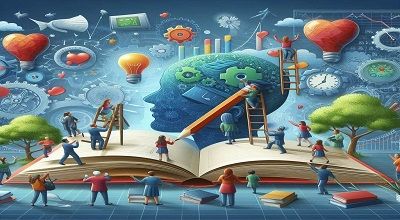Education for Improving Knowledge and Skills
The latest Education for Improving Knowledge and Skills is here. Education is a lifelong journey, and there are various ways to enhance your knowledge and skills throughout your life. Here are some strategies:
Formal Education:
- Traditional Education: Attend schools, colleges, or universities to acquire formal degrees. This is structured and provides a comprehensive understanding of a specific subject.
- Online Courses: Platforms like Coursera, edX, and Khan Academy offer a wide range of courses from universities and experts globally.
Self-Directed Learning:
- Books: Read books, articles, and research papers related to your field or areas you want to explore.
- Podcasts: Listen to podcasts to stay updated on industry trends and gain insights from experts.
- Documentaries: Visual learning through documentaries can be an engaging way to expand your knowledge.
Skill-Specific Training:
- Workshops and Seminars: Attend workshops or seminars to gain hands-on experience and insights from professionals.
- Skill Bootcamps: Intensive, short-term programs focused on specific skills, often in areas like coding, data science, or digital marketing.
Networking:
- Professional Organizations: Join industry-specific organizations to network with professionals, attend conferences, and stay updated on industry trends.
- Mentorship: Find a mentor who can guide you and share their experiences.
Online Platforms:
- LinkedIn Learning: Access a vast library of courses covering various topics.
- Udemy: Offers a wide range of courses on different skills and subjects.
Certifications:
- Obtain industry-recognized certifications to validate your skills and knowledge.
Project-Based Learning:
- Work on real-world projects to apply theoretical knowledge and gain practical experience.
Language Learning:
- Learn additional languages, especially if it aligns with your career goals or interests.
Continuous Reflection:
- Regularly assess your progress, identify areas for improvement, and set new learning goals.
Summary
Remember that the key is consistency and a willingness to adapt to the evolving landscape of knowledge and skills in your chosen field. Combining different methods and staying curious will contribute to your continuous growth and development.
